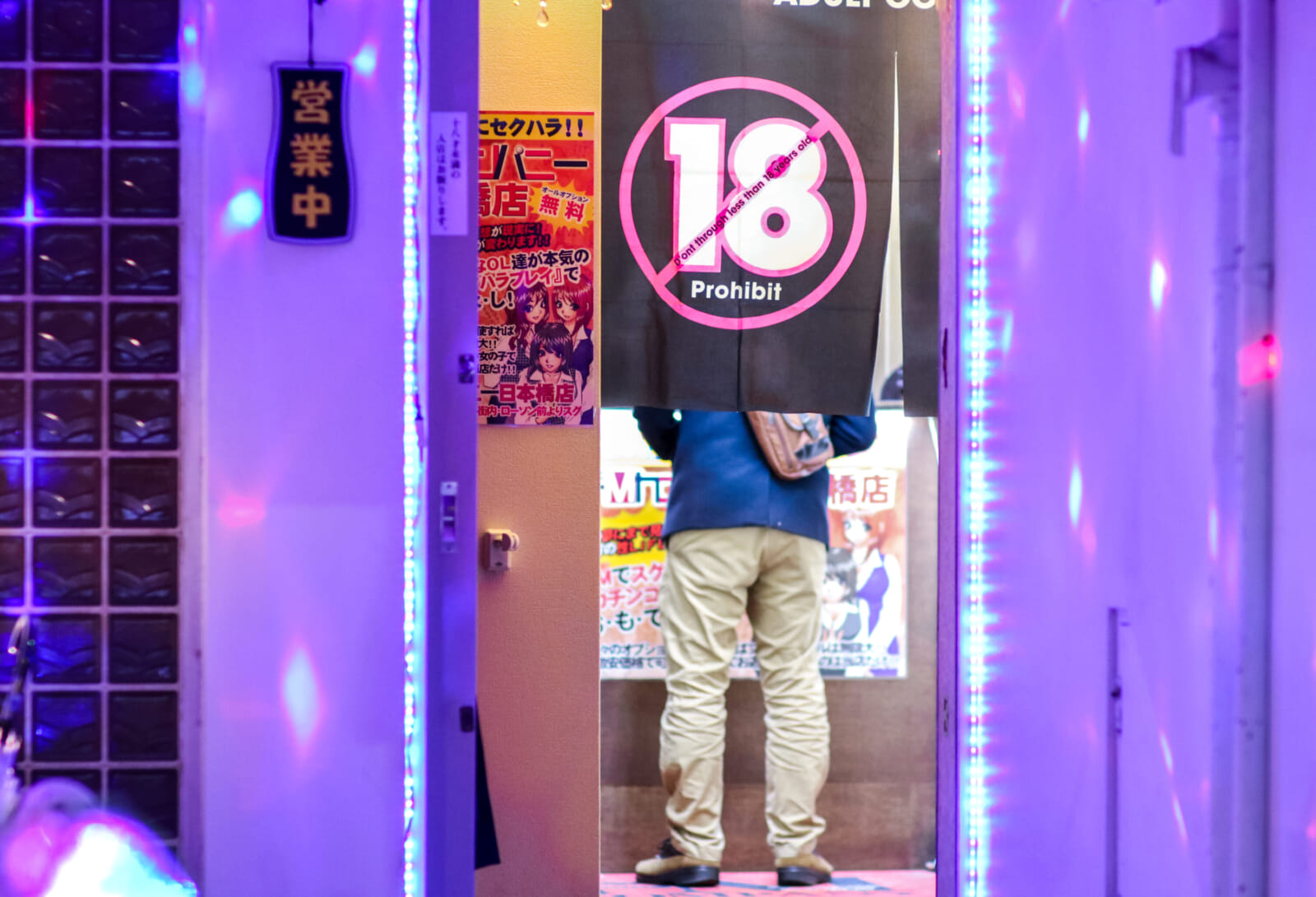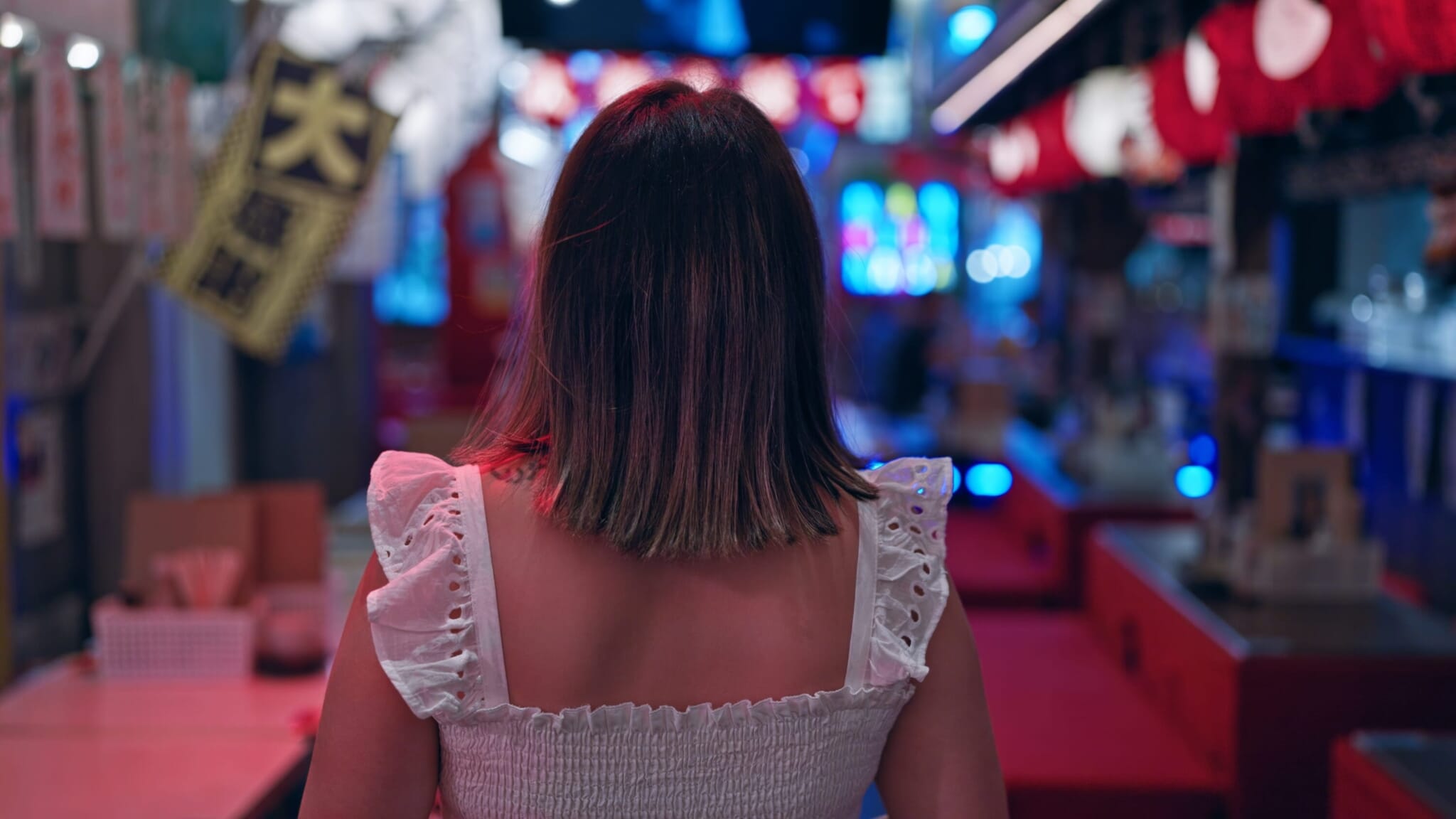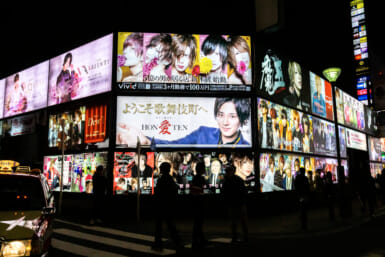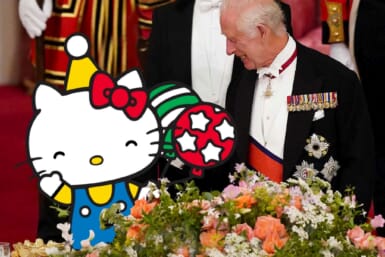Love is bought and sold here, for ¥10 million a bottle. A tequila Ferris wheel spins lazily in one corner, empty champagne bottles strewn across glass tables by the dozens. These bottles, some of them worth ¥70,000 but priced at ¥10 million, are symbols of indulgence. The true value lies in the dreams they fuel.
In this world of glittering excess, reality bends. Hosts, masters of their craft, make each moment feel real, if only fleetingly. Each one embodies a fantasy. There’s the sweetheart, the bad boy and the misunderstood artist. They whisper seductive promises of love, sex and of a genuine connection.
But this love is twisted, macabre. And it comes at a price.
Clients at host clubs in Tokyo typically spend between ¥20,000 and ¥50,000 on weekdays. On weekends, spending can escalate. In extreme cases, it can be close to ¥500,000 per night. Some clients spend upwards of tens of millions on special events on towers of champagne and exclusive services.
These clients encompass a wide range of women, from mere college students to housewives. But how can they afford these exorbitant costs?
The answer lies in the exploitative practice of urikakekin. This is a scheme that entices clients to buy drinks and services on credit. Instead of paying upfront, they accumulate debt, which can spiral out of control. These debts become a noose, tightening as customers are pressured to spend more to keep their host’s attention.
When the debt becomes insurmountable, some clients are coerced into working in the adult entertainment industry — primarily brothels — to repay their dues. This effectively traps them in a cycle of exploitation and financial servitude. Current Japanese laws do little to prevent this exploitation.
Money and Manipulation
No client enters a club aiming to drown in debt. Bit by bit, they’re lured into the honey trap.
“Ill-intended hosts prey on women’s romantic feelings and promises of marriage,” Hidemori Gen, founder of Nihon Kakekomi Temple, a crisis intervention volunteer service in Kabukicho, and representative of the Council of Fathers and Mothers to Protect Youth, told Diamond Online.
“They make clients fall for them, and then they plead for help to become number one at the club or support them to open their own club, constantly demanding more money,” continues Gen. “To pay off their debts, these women are gulled into working at sex-related establishments. Under the spell of love and manipulation, they comply with the hosts’ demands.”
At host clubs, makura eigyou, which directly translates to “pillow sales,” is a common manipulative practice in which hosts engage in sexual relations with clients to secure loyalty and increase sales. Hosts build emotional connections by flirting and promising exclusivity, progressing to physical intimacy to deepen the bond.
“Some hosts engage in unprotected sex, leading to pregnancies. They persuade women to have abortions, claiming they can have a baby next time. Sometimes, hosts even pay for the abortion to create shared guilt and complicity, making it harder for the women to break free,” says Gen.
The Council of Fathers and Mothers to Protect Youth receives calls from all over Japan, with parents expressing concerns such as, “My daughter is infatuated with a host and has accumulated ¥900 million in debt,” or “I want to stop my daughter from selling her body to earn money for a host.”

Case Studies
Urikake debts have become a societal problem. There is often news about female clients being driven into prostitution.
On June 24, the Tokyo Metropolitan Police Department announced the arrest of nine individuals, including a 25-year-old male host club employee, for introducing a 19-year-old female customer to a soapland — a bathhouse-turned-brothel — in Kawaguchi city, Saitama to repay her ¥250 million debt.
“They threatened to come to my house if I didn’t repay the debt,” she told authorities.
The problem has even extended beyond Japan’s borders.
A woman in her 40s, lured by promises of marriage, moved in with a Kabukicho host after frequenting his club. As their relationship progressed, his demands escalated. She spent around ¥10 million at the club using cash, along with 30 credit cards. On one occasion, ¥3 million was charged on her card as soon as she entered the club.
To pay for these expenses, she was coerced into prostitution overseas. “When I resisted, he would shout at me and throw things,” said the woman. “I was terrified of running out of money and loved him, so I felt I had no choice but to go.”
The host introduced her to an overseas prostitution agent, and she was shipped off to a hotel sauna shop in the Macau Special Administrative Region, where she was forced to service five to six clients daily.
“The pain was unbearable, and I wanted to escape,” she told the Tokyo Shimbun.
Denied contraception and forcibly choked by clients, she lived in a perpetual state of fear of contracting sexually transmitted diseases. The language barrier only heightened her terror.
After about 10 days, she returned to Japan earlier than planned due to her deteriorating health. She has yet to receive the promised payment of ¥30,000 per hour.
Now, burdened with ¥15 million in debt, she works in a sex industry job in Japan. She struggles with mental health issues, has lost her appetite and feels suicidal at times.
“Overseas prostitution is extremely dangerous. I fear some people may have gone missing. I don’t want others to go through this,” she said.
The Legal Landscape Enabling Exploitation
Urikake is inherently dangerous due to its exploitative nature and the severe consequences it imposes on vulnerable individuals. The system is at the very root of the problem.
Currently, no laws explicitly ban urikakekin in Japan. This significant regulatory gap allows urikakekin to evade strict lending and debt collection regulations, enabling host clubs to skirt these rules, as reported by the Tako Law Office.
While consumer protection laws like the Consumer Contract Act prohibit coercing clients into prostitution or introducing them to harmful work to repay host club fees, in practice, these laws have limited impact on host clubs. Courts often side with contractual freedom, further complicating enforcement. Moreover, the Civil Code was amended to lower the age of adulthood to 18 in April 2022.
Efforts to address exploitative practices have been introduced, but they have not specifically targeted the urikakekin system at host clubs. Without explicitly banning the system that fuels the exploitation, this practice will continue to hurt victims.
The Continuing Legal Fight
In June 2024, a revision for a bill to prevent damage from malicious host clubs was submitted to the House of Representatives. This proposed revision doesn’t prohibit urikakekin, but imposes obligations on host clubs to verify whether clients can afford the debts they incur. If clubs fail to comply, they face penalties such as suspension of business operations.
At a press conference following the bill’s submission, a mother whose daughter was exploited by a host club expressed hope that the new regulation would mitigate the harm. “It all starts with being saddled with enormous debt. A regulatory law would reduce the damage,” she said.
While there is not yet an explicit ban on urikakekin, a regulatory law is a step in the right direction. Prime Minister Fumio Kishida has stated that necessary measures will be considered after understanding the situation, but no action has been taken yet.
As night falls over the glittering world of Tokyo’s host clubs, another night of deception begins. Bright, shifting lights continue to glint off empty champagne bottles, ensnaring yet another client to its web.









